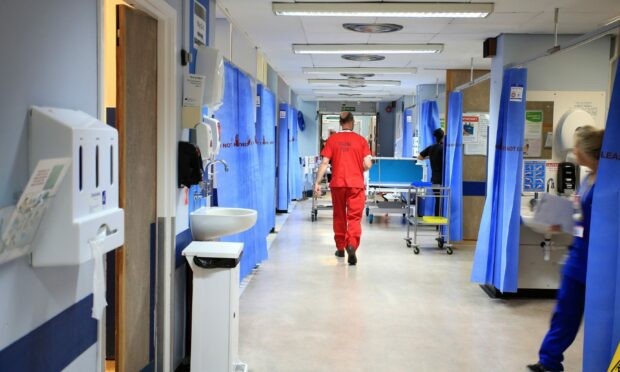The deaths of five patients in north-east hospitals were linked to mistakes made by medical staff last year, it has emerged.
NHS Grampian bosses investigated the tragic fatalities because they were connected to “unintended or unexpected incidents” in local facilities.
They were among 39 incidents probed in 2021-22 after being judged to be serious enough to trigger a “duty of candour” process.
Under a 2018 law, health boards must show they have apologised to those involved and learned lessons from any major incident that has resulted in the harm or death of a patient.
‘Duty of candour’
Known as the “duty of candour”, the regulations were brought in to improve transparency following controversies over attempts by some NHS boards to hide their failings.
The five deaths and 39 incidents represent a reduction on the figures recorded by NHS Grampian for 2020-21, when it was reported that seven patients died and 62 cases met the duty of candour threshold.
In 2019-20 there were nine deaths in north-east hospitals that were probed under the rules, out of 87 incidents.
NHS Grampian refused to comment on any reasons for the reduction in adverse events, saying the annual reports should not be compared to previous years.
Last year, NHS Highland reported that six fatalities were investigated under the process, while at NHS Tayside there were three deaths, and in Shetland there was one.
There were no fatalities recorded in duty of candour reports produced by NHS Orkney or NHS Western Isles last year.
NHS Grampian employs around 14,000 staff who deliver services to about 500,000 people.
A total of 25 of the 39 duty of candour incidents last year resulted in an “increase in the person’s treatment”.
NHS Grampian incident review
The health board’s report said: “In each case, we reviewed what happened, what we could have done better and offered to feedback the outcome and learning from the events to the people affected.”
It listed 26 improvements that had been made to services in the wake of the investigations.
They included new checks of faulty equipment, training following medication errors, revised procedures relating to vaccine expiry dates, and updated plans covering falls and discharges.
An NHS Grampian spokeswoman said: “There are always some risks in the provision of health and social care.
“When unintended or unexpected events take place, we follow the Duty of Candour process, as laid down in law, to ensure we learn from these incidents, and we share all relevant information with those involved.
“We support our teams to raise any issues of concern they have, and we encourage patients and their families to ask questions about their treatment and care.
“Open and honest dialogue allows us to offer the very best care we can and ensures individuals are true partners in their care.”



Conversation